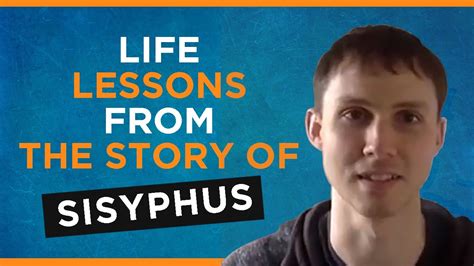In the realm of Greek mythology, few stories have captivated the imagination of philosophers, writers, and the general public alike as the tale of Sisyphus. This ancient figure, condemned by the gods to roll a massive boulder up a hill only for it to roll back down, repeating the cycle ad infinitum, has become an emblematic symbol of futile labor and the human condition. Yet, beneath the surface of this seemingly despairing narrative lies a plethora of profound life lessons that resonate deeply with the complexities and challenges of human existence.
The Futility and the Beauty of Effort
At its core, Sisyphus’ story can be seen as a stark reminder of the futility that often accompanies human endeavor. Despite his tireless efforts, Sisyphus never achieves his goal; the boulder always rolls back down,undoing his progress. However, it is in this very act of pushing the boulder up the hill, despite knowing the outcome, that we find a profound lesson. The value of our actions, our efforts, and our lives may not lie in their end results or in achieving permanence but in the act itself. Sisyphus’ determination to continue, to persevere in the face of futility, is a testament to the human spirit’s capacity for resilience, defiance, and the inherent worth of effort for its own sake.
Acceptance and Rebellion
Sisyphus’ myth also teaches us about acceptance and rebellion. On one hand, Sisyphus accepts his fate; he does not rail against the gods or attempt to escape his punishment. This acceptance can be seen as a form of surrender, a recognition of the limits of his power and control. On the other hand, every time Sisyphus pushes the boulder up the hill, he is rebelling against his fate, challenging the status quo, and asserting his will. This dichotomy between acceptance and rebellion presents a nuanced view of how we might approach life’s challenges. Sometimes, acceptance of what is outside our control is necessary, but equally important is the willingness to act, to strive, and to challenge, even in the face of overwhelming odds.
The Value of the Present Moment
One of the most significant lessons from Sisyphus’ story is the importance of living in the present. His task is neverending, with no promise of rest or achievement. Yet, it is in the doing, in the act of pushing the boulder, that Sisyphus finds his existence. This mythological figure encourages us to focus on the process rather than the outcome, to find meaning and fulfillment in the journey rather than the destination. In a world where we are often driven by goals and results, Sisyphus reminds us that true living occurs in the present moment, in the engagement with our tasks, our passions, and the people around us.
The Absurdity of Human Existence
Perhaps the most famous philosophical interpretation of Sisyphus’ myth comes from Albert Camus, who saw in Sisyphus the embodiment of the absurd man. Camus argued that humanity’s desire for meaning and purpose in life is at odds with the fact that the universe is indifferent to human existence. Sisyphus, pushing his boulder in a seemingly meaningless task, becomes a symbol of how humanity must create its own meaning in the face of an absurd world. This perspective invites us to embrace the absurd, to find our own reasons for living, and to create our own meaning, even in, or especially in, the most challenging and futile-seeming circumstances.
Conclusion
Sisyphus’ story is a rich tapestry of themes and life lessons that continue to resonate deeply with humanity. It speaks to our capacity for perseverance, the importance of living in the present, the need to find our own meaning in an often indifferent world, and the intrinsic value of effort and endeavor. As we navigate the complexities of our own lives, grappling with our challenges and searching for purpose, Sisyphus stands as a powerful symbol of the human spirit’s indomitable will to act, to strive, and to find fulfillment in the doing.
What is the primary lesson from Sisyphus’ story regarding effort and outcome?
+The primary lesson is that the value of our actions may not lie in their end results or in achieving permanence but in the act itself, emphasizing the importance of perseverance and the intrinsic worth of effort.
How does Sisyphus’ tale relate to the concept of the absurd in human existence?
+Sisyphus’ story is often seen as a symbol of the absurd, where humanity’s desire for meaning and purpose clashes with the indifference of the universe. It suggests that individuals must create their own meaning in life despite this absurdity.
What can be learned from Sisyphus about acceptance and rebellion in the face of life’s challenges?
+Sisyphus’ myth teaches a nuanced view of acceptance and rebellion, showing that sometimes acceptance of what is outside our control is necessary, but equally important is the willingness to act and challenge, even in the face of overwhelming odds.
How does the story of Sisyphus encourage us to approach life’s journey versus its destinations?
+Sisyphus’ tale encourages us to focus on the process, to find meaning and fulfillment in the journey rather than the destination, emphasizing the importance of living in the present moment and finding value in the act of doing.
What role does perseverance play in the lessons derived from Sisyphus’ myth?
+Perseverance is a central theme, as Sisyphus continues to push the boulder up the hill despite knowing it will roll back down. This persistence in the face of futility is a powerful symbol of the human spirit’s capacity for resilience and determination.



